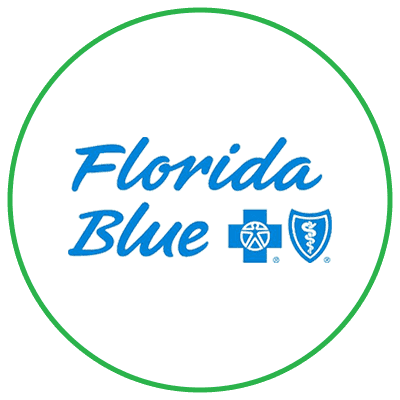
Macon Aftercare Services for Addiction
Supporting the Long-Term Recoveries of Individuals Struggling with Substance Abuse in Georgia
Recognizing the existence of and treating a substance abuse disorder is the first, vital step to regaining control and living your best life. We also understand that the journey to recovery is long, and it can be intimidating to leave a controlled space like our clinic and reenter the outside world. By default, you will have more exposure to triggers and temptations. Fortunately, you do not have to navigate your continuing journey alone. Any individual recovering from addiction needs a dependable support system, and our team at the Georgia Recovery Campus is here to give you the tools and resources you need to continue forward with confidence.
One of the most crucial components of our Macon aftercare services is family involvement. Your loved ones should play an active role in your recovery journey and long-term sobriety, and that starts with involving them as you prepare to leave our facility. Our aftercare coordinators will work with you and your family to review available services and recommended treatments in your local area. We also educate families on best practices for supporting a loved one recovering from addiction.
To learn more about how we approach dual diagnosis treatment and aftercare for addiction in Macon, call (478) 216-1110 or contact us online. Same-day appointments are available!

We Accept Most Major insurances
Building a Successful Aftercare Program
At the Georgia Recovery Campus, we are committed to helping our patients post-discharge however we can. That typically starts with help in developing a comprehensive aftercare plan that incorporates the components recommended by the Substance Abuse and Mental Health Services Administration (SAMHSA).
Our Macon aftercare services can assist you with the key components of a successful plan:
- Community. Community can provide vital resources and connections for individuals in recovery. With support from peers in recovery, individuals are given the motivation and accountability to stay on track with their goals. Connecting with members of a larger community can also provide access to new activities, employment opportunities, treatment centers, and other resources that can contribute to long-term sobriety. In addition to providing tangible resources for wellness, community also offers emotional support. Without judgment or criticism, people in recovery can find a safe haven among those who understand what they’re going through. This feeling of acceptance and belonging encourages individuals to open up about their struggles and seek help when needed. We are familiar with and can connect you with a wide array of resources in Georgia.
- Health. Maintaining physical and mental health is integral to a successful aftercare plan for anyone recovering from addiction. Establishing healthy habits like exercising regularly, eating nutritious meals, and getting sufficient sleep can go a long way in promoting long-term sobriety. Taking care of physical health can lead to improved energy levels, which can help individuals feel motivated and more able to stay on track with their recovery goals. Mental health is also essential. Engaging in activities that provide relaxation such as meditation or yoga or simply taking the time to reflect on positive aspects of life are great ways to keep mental wellness in check. In addition to these self-care practices, seeking professional help can be beneficial for those in recovery. Talk therapy is an important part of aftercare and can provide guidance and insight into continuing sobriety. Seeking prompt treatment for emerging physical or mental health issues can also help avoid the urge to rely on substances to manage symptoms. Ultimately, diligently fostering one’s physical and mental well-being will enable individuals to maintain a healthy lifestyle while still effectively dealing with the challenges associated with addiction recovery.
- Home. A secure, safe, and comfortable living space can provide relief from the outside world, giving individuals in recovery the opportunity to focus on their own well-being and maintain sobriety. Keeping surfaces free of dust and clutter can help promote feelings of safety and security, while also providing mental clarity. It can also be helpful to have designated spaces within the home that are dedicated to relaxation or self-care activities like yoga or meditation. In addition to organizing one’s physical space, it is important for individuals in recovery to ensure that any potential triggers are removed from their living environment. This means avoiding substances or items associated with substance use, such as alcohol or drug paraphernalia. Creating boundaries that limit access to these items can help reduce temptation when individuals are feeling particularly vulnerable. Having access to natural light and fresh air is another key factor in creating a safe living space for those in recovery. Natural sunlight has been proven to improve moods, while breathing fresh air can help clear the mind of negative thoughts or cravings associated with addiction. By removing potential triggers, organizing their physical space, and taking advantage of natural elements like sunlight and fresh air, individuals in aftercare will live happier, healthier lives and make achieving long-term sobriety easier.
- Purpose. Having a sense of purpose can help individuals stay motivated and focused on the goal of lasting sobriety. Finding a purposeful activity can provide individuals in recovery with a sense of accomplishment and pride while also connecting them to something larger than themselves. For those in recovery, having access to meaningful activities that offer engagement and gratification can provide structure to daily life and help to fill any voids left by addictive behaviors. This could include anything from volunteering or taking up a hobby to going back to school or finding full-time employment. These pursuits not only provide useful skills or qualifications but also help individuals build meaningful relationships with peers who share similar interests. Beyond providing tangible benefits, finding a purpose can be beneficial for mental health as well. Feeling connected to something that brings joy, pride, or satisfaction can be incredibly empowering for those in recovery and allow them to develop healthier coping mechanisms when dealing with difficult emotions such as stress, anxiety, or boredom. Having an outlet gives individuals an opportunity for self-expression and allows them to use their creativity instead of relying on substances for fulfillment.
Frequently Asked Questions
How soon after completing treatment should I start aftercare?
Ideally, aftercare should begin immediately or very shortly after completing your primary treatment program to maintain momentum and support during the vulnerable transition period.
How long do aftercare programs typically last?
The duration of aftercare varies greatly depending on individual needs and progress. It can range from a few months to ongoing support over a year or longer.


Why Choose Georgia Recovery Campus?
-
TransparencyWe understand how difficult recovery is. We work one on one with you every step of the way to ensure we are helping you make the necessary changes to obtain the life you deserve.
-
Person-FocusedWhen you come to our facility, you are not only getting a beautiful campus and quality services, but you are also getting a team who truly cares about your recovery.
-
Top-Class Recovery TeamOur dedicated, experienced, and compassionate team of experts is here for you every step of the way. We have the tools, resources, and knowledge to help you on your journey.
-
Customized TreatmentAt Georgia Recovery Campus we treat the entire mind, body, and spirit. When you come to us, we work one on one with you to select the track that would be most beneficial to you and your goals.




